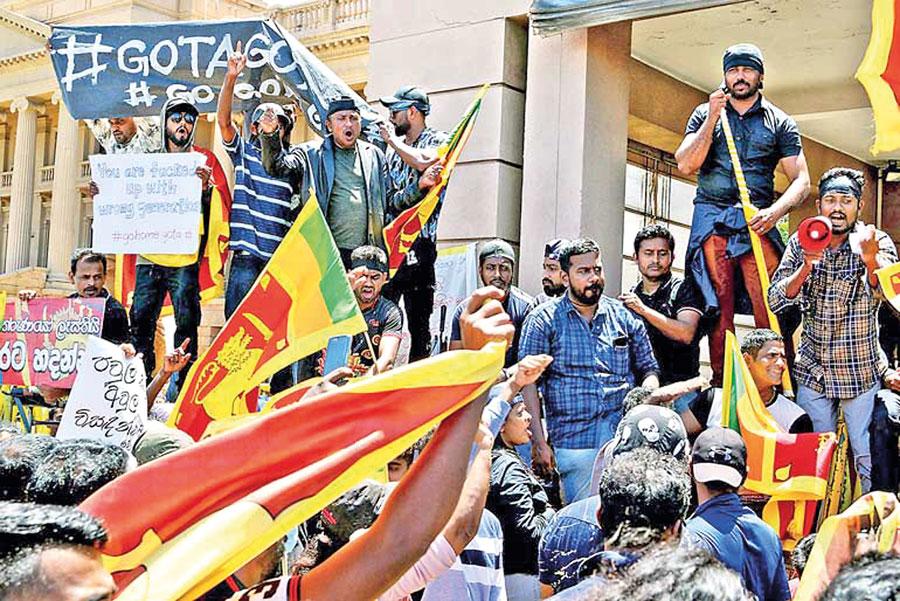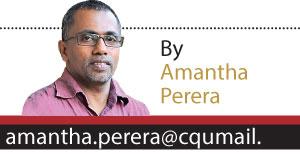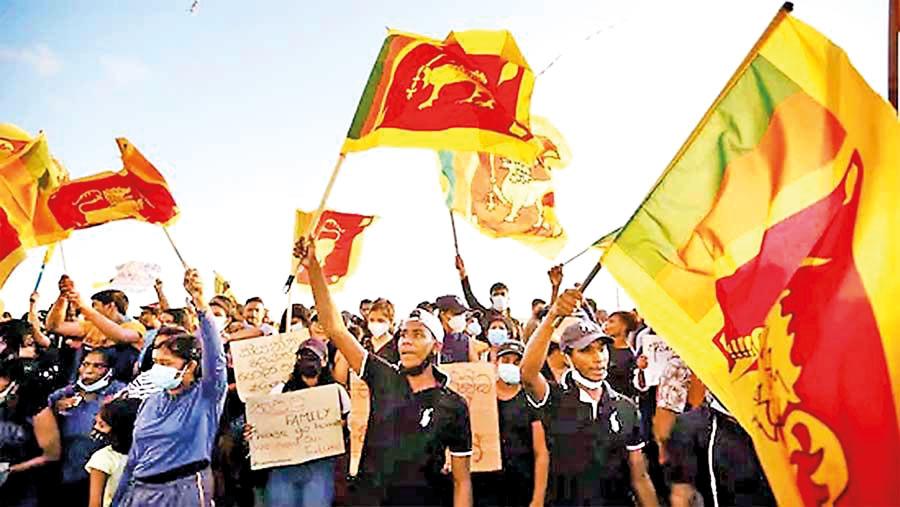Reply To:
Name - Reply Comment

During the last six months, I have had numerous conversations with colleagues based in Sri Lanka on the impact of the Aragalaya and the demands of work has had on them
Journalism has traditionally been hyper-focused on objectivity. To the extent that we sometimes try to distil all identity from our work. In the age of social media and citizen journalism, we as a world now demand for identity, demand for sense of authenticity in every morsel of information we consume
I grew up in a non-conformist household. We were encouraged to question the norm if we felt it should be and never ever made to feel that we had a set pattern or a role to subscribe to. Except, when it came to English.
never ever made to feel that we had a set pattern or a role to subscribe to. Except, when it came to English.
Here, there was a strict rule book and everything had to be by that book, more precisely whatever that was standard British English. And so it was, till I landed in university.
Whereupon I found myself in late Dr. Manique Gunasekera’s class. The discussions were always on new Englishes, how the language we spoke was different and unique in so many ways to what was spoken in England, or for that matter, anywhere else. Rather than run away from it, we were now encouraged to embrace it. It was not only about the language, it was about identity, about my identity.
I went home and told my parents that I was a speaker of Sri Lankan English and saw sacrilege written all over their raised eyebrows. Then I opened Midnight’s Children. I was someone who did not take a likening to any kind of prescribed text. The moment a text was prescribed, it was like taking medicine for me, essential, necessary but still painful. But Salman Rushdie was like a tapestry of vivid, bright colours dancing on the pages. Not the dull black and white monochrome I was used to. This was exhilarating.
“Whereupon a word from Ghani; an obedient reply from behind the sheet; a drawstring pulled; and pyjamas fall from the celestial rump, which swells wondrously through the hole. Aadam Aziz forces himself into a medical frame of mind . . . reaches out . . . feels. And swears to himself, in amazement, that he sees the bottom reddening in a shy, but compliant blush.”
I was someone who did not take a likening to any kind of prescribed text. The moment a text was prescribed, it was like taking medicine for me, essential, necessary but still painful. But Salman Rushdie was like a tapestry of vivid, bright colours dancing on the pages. Not the dull black and white monochrome I was used to. This was exhilarating
Blushing buttocks aside, it would take me years to fully grasp the impact of those like Rushdie, Arundhati Roy and Romesh Gunesekera had on me. This was not only about language. This would be part of a process of wresting control of my narrative and my words from the grasp of others.
This would become central to my journalism at the Sunday Leader. It was the time when the copy from foreign outputs be it wire services and others was held as the ideal. An age when parachute foreign correspondents, pumped on by local wanna-bes, walked in pomp and pageantry. For a while I subscribed to this. But the stories they were telling were not my stories, they were not the stories of a country in turmoil. They were sterilised production line copy.
As I began work as researcher exploring the confluence of communal and personal trauma in journalism, I understood the importance of our histories told authentically.
During the last six months, I have had numerous conversations with colleagues based in Sri Lanka on the impact of the Aragalaya and the demands of work has had on them. These conversations have led to the Dart Centre for Journalism and Trauma, Asia Pacific launching a specialised programme for Sri Lanka.
Blushing buttocks aside, it would take me years to fully grasp the impact of those like Rushdie, Arundhati Roy and Romesh Gunesekera had on me. This was not only about language. This would be part of a process of wresting control of my narrative and my words from the grasp of others
Journalism has traditionally been hyper-focused on objectivity. To the extent that we sometimes try to distil all identity from our work. In the age of social media and citizen journalism, we as a world now demand for identity, demand for sense of authenticity in every morsel of information we consume.
Back to Rushdie. His works was what clinched the deal for me that I should own the language I use as mine and not something that is bestowed on me. That I should own these stories, that we as a journalism community should own these stories and should be the most empathetic tellers of those stories. Because our stories define us and the community we call ours.
The writer is a journalism researcher. He can be contacted on
[email protected]
